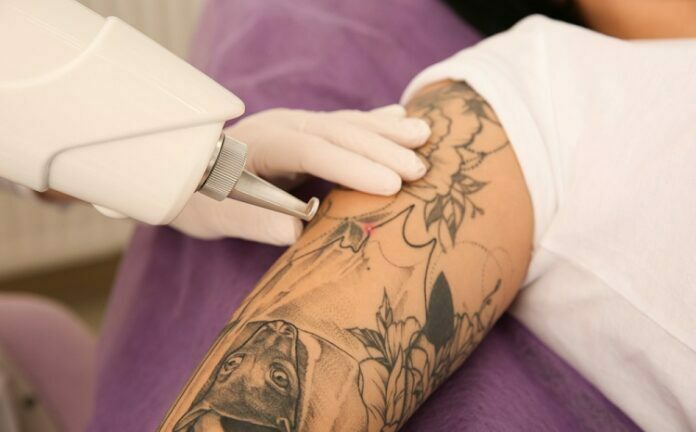Whether you’re thinking of having laser tattoo removal done or you’re already a customer,
there are some things you should do after your procedure to ensure that you will not have scars left behind. This includes protecting the treated area from the sun, avoiding other treatments, and taking care of the treated area.
Table of Contents
Avoid frequent treatments
Taking care of your skin after laser tattoo removal is very important to reduce the risk of scarring. The scars that appear after laser treatment are usually the result of poor aftercare.
There are many steps you can take to prevent scarring. One of the best ways to do this is to consult a trained dermatologist about the correct aftercare procedures for your particular type of tattoo. They can also recommend the best products to use for your skin.
If you have darker skin, you may be more prone to scarring after laser treatment. This is because tattoos with darker ink colors are more intricate to remove than lighter ones. A PICO laser uses a laser that eliminates these dark pigments, reducing the time required for laser removal.
Taking care of your skin after laser tattoo treatment will help your skin heal faster. For example, you should drink plenty of water and eat healthy foods to ensure your body is hydrated and healthy.
Take care of the treated area.
Does laser tattoo removal leave scars? Following laser tattoo removal, it’s crucial to take care of the treated area to ensure quick healing and no scarring. However, infection is the leading cause of scarring, so you must take extra care.
You can prevent infections by cleaning the treated area twice a day. You should also apply Neosporin or antibiotic ointment three times a day. These medications are over-the-counter and will help protect the soft skin from infection.
It would be best if you stayed out of the sun. Sunlight will irritate your skin and delay the healing process. You should also wear sunscreen with an SPF of at least 30.
You should also use a cool compress for the treated area for at least 8 hours. This can be an ice pack, a cool, damp cloth, or a bag of frozen vegetables. Applying the cool compress will reduce the inflammation and prepare your skin for the subsequent treatment.
Stay away from hot baths and showers. In addition, you should avoid wearing tight clothing or perfumes. Instead, wear loose clothing and a clean bandage to protect your skin.
Avoid sun exposure
Avoid sun exposure as much as possible during laser tattoo removal. This is because exposure to the sun can have adverse effects on the treated area. For example, it can increase the risk of blistering, fading, and scarring.
If you can’t avoid the sun, wear SPF 50+ sunscreen every time you leave your house. You should also wear a hat and protective clothing. This will help protect your treated area from sun damage and speed healing.
It is also essential to drink plenty of water after laser tattoo removal. In addition, wash your tattoo with mild soap twice daily. This will help remove any debris and keep your tattoo clean.
In addition to sunscreen, you should avoid soaking your tattoo in water. Hot baths, scented lotions, and perfumes can all irritate your skin. You should also avoid rubbing and picking at your tattoo. If you do accidentally rub it, this can lead to scarring.
Protect sensitive skin
Taking care of sensitive skin after laser tattoo removal is essential to minimizing the chances of scarring. The best way to do this is to follow the aftercare instructions of your physician.
After laser tattoo removal, your treated area may experience itching, redness, swelling, and blistering. These symptoms are usual and should subside after a couple of weeks. However, if they persist, contact your doctor.
A cool compress on the affected area can help reduce inflammation and swelling. Applying Vaseline or ointment to the affected area can also help. However, it is recommended to use a triple antibiotic ointment to reduce the risk of scarring.
Having adequate hydration is also key to the healing process. Drinking plenty of water can boost your immune system and keep your skin healthy. On the other hand, drinking too much alcohol can dehydrate your skin and suppress healing.
It is also essential to stay out of the sun. Sun exposure can irritate the treated area and increase blistering. Wearing sunscreen can also prolong healing time. Learn more about laser tattoo removal on this dedicated website: https://manarax.com/.




